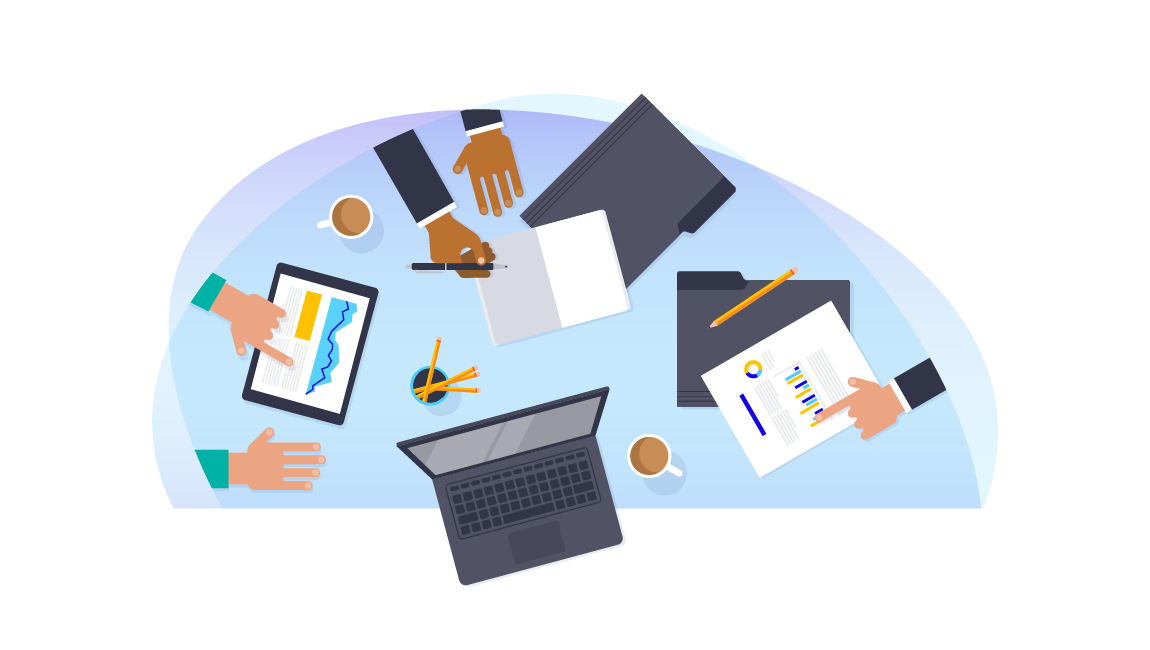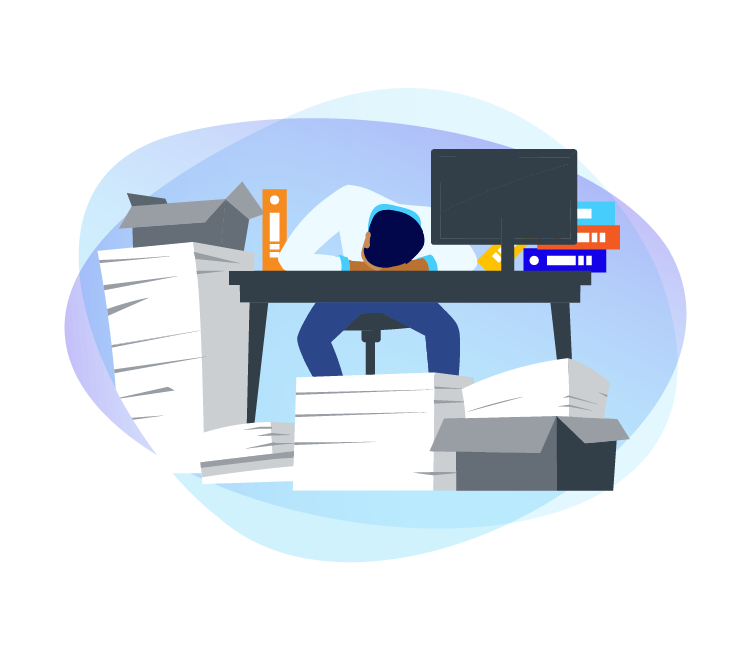Checklist for Enterprise Organizations
Growing enterprises continually evaluate new processes and technologies to help their organizations be more efficient, productive, and secure.
One important area of focus is document management — enabling users to work more efficiently with the documents, emails, and messages that flow through the business every day.
What they increasingly find is that traditional enterprise approaches to document management do not meet the needs of their advanced users, particularly those who work with high-value or regulated content.
These users have specific requirements for:
- Collaborating with other stakeholders
- Connecting documents with business workflows
- Protecting valuable information

Key considerations when evaluating document management platforms
What additional functionality should I look for?
Before selecting a document management platform, it’s important to consider your users’ specific functional requirements, as well as the unique capabilities of leading document management platform providers.

1.
How does document management help make our teams more organized and productive?
A modern document management platform organizes and structures information so users can:
- Find the content they need, collaborate efficiently, and repurpose existing work product
- Save documents and emails together, in the proper context, organized around the relevant matter, client, or transaction
- Complete tasks quickly and without friction with simple and intuitive tools

2.
How does a modern document management platform differ from traditional document systems?
In addition to organizing information clearly, a modern document platform should provide advanced capabilities that make content more accessible and connected to your business.
Modern platforms accelerate document collaboration across your organization with features like:
- Secure document sharing
- Workflow integration
- Real-time co-authoring

3.
Can the solution manage emails as well as documents?
One of the weaknesses of legacy content systems is they don’t save emails and documents together.
A modern platform enables users to manage the high volume of email they work with by saving emails automatically in the correct location, so their content is secured and searchable.
This ensures that users can access documents and emails together for a complete picture of the project, transaction, or client they are working with.

4.
Does the document platform make it easy to search and find the right documents?
An IDC study found that "data professionals are losing 50% of their time every week" — 30% searching for, governing, and preparing data, plus 20% duplicating work.
Part of the challenge is that users have to look across multiple silos of information stored in different systems.
In a modern platform approach, there is a single source of truth for content combined with powerful search capabilities so users can find documents with pinpoint accuracy. This saves time while improving your organization’s ability to optimize its re-use of past work and democratize access to its institutional knowledge.

5.
Is the platform intuitive and easy to use?
Busy professionals have little patience for overly complex or difficult-to-use technology.
Ideally, the platform should:
- Work seamlessly with the technologies your team already uses, like Microsoft 365 and smartphones
- Deliver an intuitive user experience that drives user engagement and adoption
- Require minimal training and provide embedded learning tools to optimize performance

6.
Can users work securely outside the office or on a mobile device?
In a world of hybrid and mobile work, professionals need to access their work securely wherever they are to stay productive.
Modern document platforms enable users to work from anywhere on any device, with a consistent interface and user experience. The best solution enables workers to stay productive by accessing and editing documents, securely collaborating with colleagues, and reviewing and approving documents from anywhere.

7.
Can the document platform protect our company and our client’s confidential information?
A document management platform should deliver a multi-layered approach to security that protects information from internal and external risks.
Documents and emails should:
- Be automatically encrypted, with need-to-know access set at the document and matter level
- Have active threat detection monitoring to flag any abnormal activity
Security protections should also include support for defined regulatory policies like GDPR and CCPA, while being fully tracked and auditable.

8.
Does the document management platform leverage the cloud?
Nearly every enterprise is working to advance its cloud strategy.
There are clear advantages to the software-as-a-service (SaaS) model, but some organizations worry about moving their confidential content into the cloud.
Look for cloud-native platform providers with well-architected cloud solutions that emphasize performance, reliability, agility, and most critically, security.
Check for trusted cloud standards and certifications — ISO 27001 series and SOC 2 Type 2 are the most important.

9.
Does the platform vendor have a comprehensive implementation strategy?
Look for vendors who understand the importance of a seamless implementation process and have the services, programs, and partner relationships to ensure project success.
Vendors should offer comprehensive implementation support that includes project management, risk assessment, data migration, and recommended design, with additional assistance to ensure change management, user enablement, and user adoption.

10.
Who does the platform vendor work with and how well do they support customer success?
As with any significant technology decision, take care to evaluate the potential vendors in the market against your specific requirements.
Choose a partner with a proven track record of working with large and complex enterprises in highly regulated industries, such as:
- banking
- finance
- healthcare
Seek out vendors who have a demonstrated focus on customer success and a history of building long-term relationships with clients.
Making Knowledge Work
Request a demo
Ready to see how iManage can make a difference to your organization?


About the author
Heidi Hanson